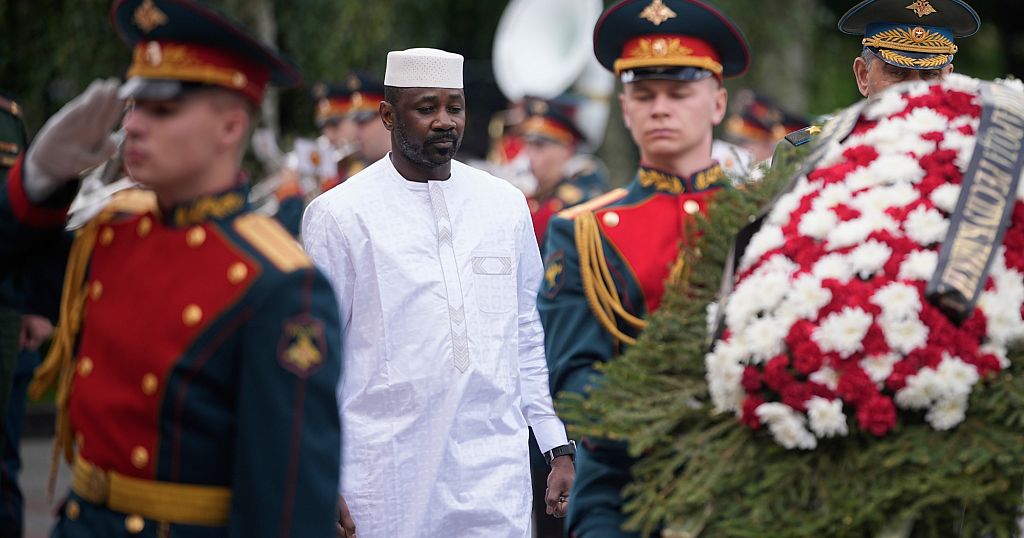Mali’s transitional president, General Assimi Goïta, has embarked on a significant diplomatic mission, arriving in Moscow on Sunday for a five-day official visit at the invitation of Russian President Vladimir Putin. This pivotal trip comes on the eve of the Russia–Africa Summit, underscoring the intent to bolster bilateral relations between Mali and Russia. The forthcoming discussions are anticipated to delve into crucial areas of cooperation, including security, energy, and transport, marking a concerted effort to deepen the ties between the two nations.
General Goïta’s ascent to power was preceded by coups in 2020 and 2021, a period that witnessed Mali’s strategic shift away from Western alliances towards fostering closer relationships with Moscow. This realignment is particularly notable given the current geopolitical landscape. In a move that underscored the country’s internal political dynamics, the junta led by Goïta dissolved all political parties in May. This decision was accompanied by an announcement that Goïta would extend his tenure for at least another five years, a move that came despite earlier commitments to conduct elections. The dissolution of parties and the extension of Goïta’s rule signal a significant consolidation of power and a crackdown on dissent within Mali.
The timing of Goïta’s visit to Moscow is also noteworthy, coming as it does on the heels of a significant development in Mali’s security landscape. Russia’s paramilitary Wagner group, which had been playing a crucial role in helping the Malian government combat a long-standing Islamic insurgency, has been replaced by its successor, Africa Corps. The insurgency, waged by jihadist groups affiliated with both the Islamic State and al-Qaeda, has posed a formidable challenge to the stability and security of Mali. The involvement of Russian paramilitary groups reflects the complex and evolving nature of global security engagements, particularly in regions grappling with extremist violence.
As General Goïta and President Putin engage in their talks, the focus on security, energy, and transport cooperation is likely to predominate. These areas of collaboration are not only pivotal for the bilateral relationship between Mali and Russia but also hold significant implications for the broader Africa-Russia dynamic, especially in the context of the upcoming Russia–Africa Summit. The visit, therefore, represents a critical moment in the evolving geopolitical alignments of Mali and the African continent, highlighting the quest for diversified partnerships and the complexities of navigating global and regional security challenges.
